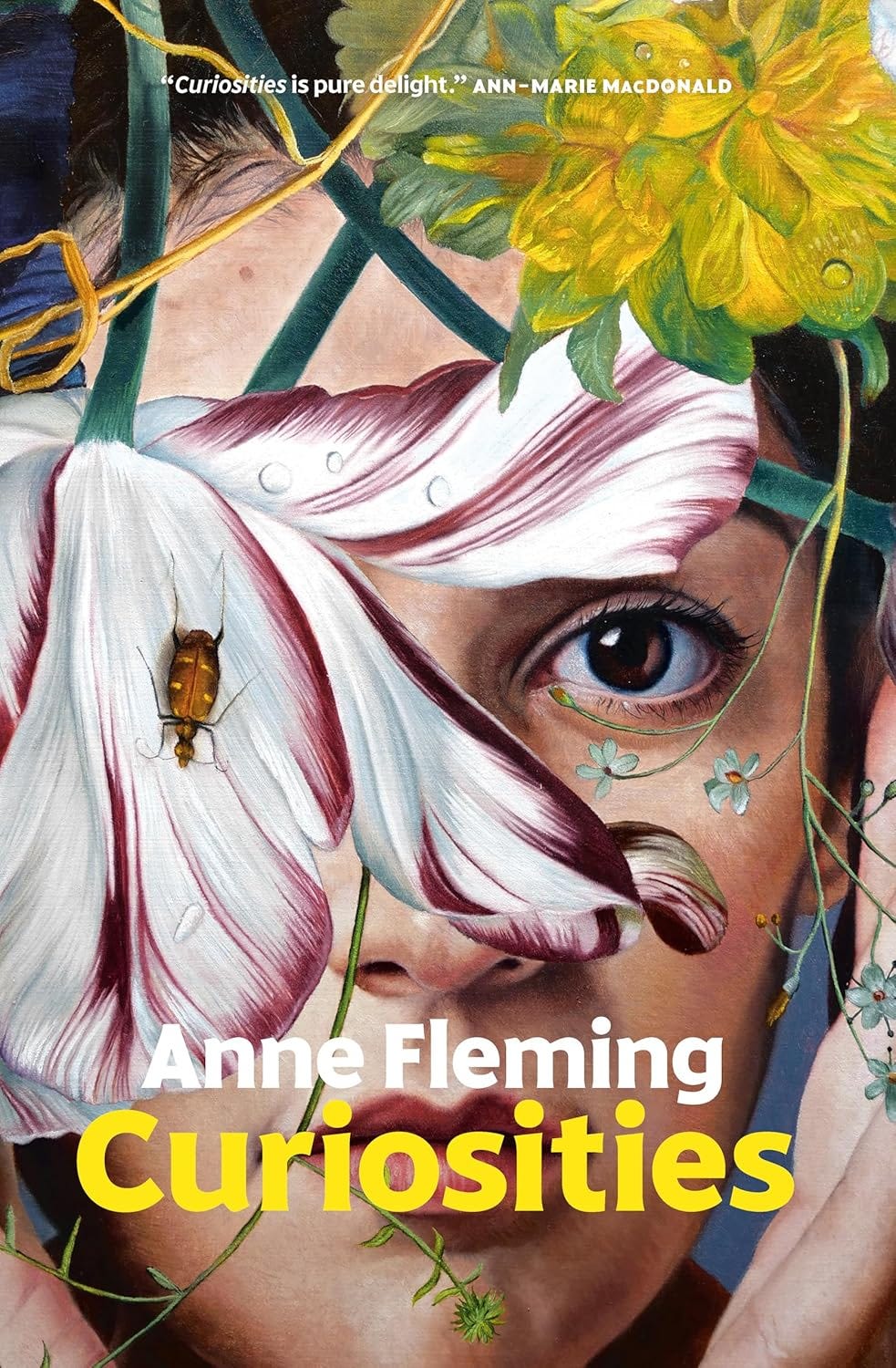Curiosities by Anne Fleming
A Fiction Review by Heather McBriarty
A scientifically minded, 17th-century aristocratic widow; a maid orphaned by an outbreak of plague and her childhood best friend; the mute hermit “witch” who saved them; a deeply repressed, witch-obsessed young clergyman; and the 21st-century amateur historian committed to exploring their story, come together in this kaleidoscope of a novel.
Anne Fleming stumbled upon the memoir of Lady Margaret Long who told the story of her maid, companion and (possible) lover, Joan. Joan was orphaned as a small child when the plague ripped through her English village. Together with her friend Thomasina – Tom, she preferred – they were taken in by one of the few survivors, Old Nut, a mute woman later accused of witchcraft. Joan and Tom were then separated, Joan sent to a life richer than she could have dreamed with Lady Margaret, and setting Tom off on a fateful voyage to the new world and her reinvention as a man.
Many years later, Joan and Tom met again by accident and fell in love, but an ill-timed discovery led to charges of witchcraft against Joan. Told through the eyes of various characters, the book weaves together disparate narratives into a tale of both love and the brutality of the witch mania of the 1600s, along with the author’s contemporary account of her search for the truth in musty old pages.
Joan’s life story begins the book, and I was immediately swept up in her tale. Fleming’s writing is breathtaking and evocative. It began to falter with clergyman John Heard’s “confession”, a ramble from his point of view of his life and career. It picked up pace again as Tom told her story, the threads coming together, but the conflict I felt was building never really reached a head. I found the author’s sections, explaining her modern-day search for documentary evidence of Joan, Tom, Margaret and Heard, a distraction and at odds with the fictionalized vibe. I could not quite warm to those.
“Curiosities is neither totally fiction nor non-fiction, described as genre-bending, yet in trying to straddle the fence, to be both, it teeters off balance.”
This novel has a lot to unpack. Set in a period when women who thought, who healed, who didn’t fit the narrow confines of society and the church’s parameters for propriety were looked at with suspicion and hostility and faced brutal punishment including death. Excluding, of course, those who had money or connections. It is a stark reminder of how powerless women were, at the mercy of their fathers, husbands and the church filled with men eager to find the devil at work. Joan found shelter and comfort in the care of a powerful aristocrat, Tom, in a man's clothing and manner.
Curiosities is neither totally fiction nor non-fiction, described as genre-bending, yet in trying to straddle the fence, to be both, it teeters off balance. Unlike fiction, real life never ties itself up in neat bows at the end; history notoriously slips through fingers in fading memories, lost records and regular lives undocumented. So is the case with this book and these characters: an abrupt, inconclusive end, the author’s musings on what she imagined or hoped had happened. In a book presented as a novel, however, this was unsatisfying, like an afterthought. Was I left unsettled, vaguely disappointed? Yes. Is the fact that I am still thinking about these characters long after finishing the book a testament to Fleming’s writing and careful crafting of their lives, hopes and dreams? Also, yes.
About the Author
ANNE FLEMING is the author of Pool-Hopping and Other Stories, shortlisted for the Governor General's Literary Award for Fiction and the Ethel Wilson Fiction Prize; and the novel Anomaly, published to widespread acclaim. Her middle-grade novel, The Goat, was a Junior Library Guild and White Ravens selection, shortlisted for Italy's Premio Strega, optioned for film, and named one of the Top Ten Children's Books of the Year by the New York Public Library and The Wall Street Journal. Anne Fleming lives in Victoria, British Columbia.
About the Reviewer
Heather McBriarty is an author, lecturer and Medical Radiation Technologist based in Saint John, NB. Her love of reading and books began early in life, as did her love of writing, but the discovery of old family correspondence led to her first non-fiction book, Somewhere in Flanders: Letters from the Front, and a passion for the First World War. She has delivered lectures to the Royal Nova Scotia Historical Society, NB Genealogy Society, and Western Front Association (Central Ontario Branch), among others, on the war. Heather’s first novel of the “Great War”, Amid the Splintered Trees, was launched in November 2021.
Book Details
Publisher : Knopf Canada (April 9 2024)
Language : English
Hardcover : 320 pages
ISBN-10 : 1039004970
ISBN-13 : 978-1039004979





